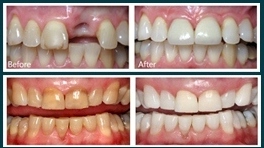A recent development in orthodontics - find out more about how and why orthodontic treatment might benefit from Temporary Anchorage Devices (TADs).
Why does my treatment involve mini-implants?
Mini-implants were introduced at the start of the 21st century as a new means of precisely controlling tooth movements during some orthodontic treatments. They are used by orthodontists across the world to correct bite problems which would otherwise require jaw (orthognathic) surgery. Mini-implant techniques are now part of orthodontic specialist training.
What is a mini-implant?
It’s a very small (1.5 – 2 mm wide) customised titanium alloy screw which acts as an anchor point in your jaw. Mini-implants are frequently placed between the roots of teeth, but may also be sited in the roof of the mouth. They are then connected to a fixed brace to help move the teeth.
Will it be painful?
Local anaesthesia is used to numb a small area of your gum, and the mini-implant is then gently inserted. You may experience an odd pressure sensation as this occurs. Once the numbness wears off you may feel some discomfort within the first 24 hours and approximately 50% of patients report taking simple painkillers (e.g. ibuprofen or paracetamol) to resolve this. Mini-implants are easily removed when no longer needed, by unwinding them, usually without the need for any anaesthesia. The resulting small wound heals painlessly within several days.
How long will the mini-implant(s) be in place?
This depends on the type of treatment you’re having, and its goals. Mini-implants are generally in place for between several months and years, but once a mini-implant’s in place you’ll probably barely notice it.
What do I need to do?
You need to do little more to look after a mini-implant than you do for your fixed brace. It’s advisable to use a small toothbrush, dipped in antiseptic mouthwash, to gently clean around the top of the mini-implant. Also, avoid using an electric toothbrush on the mini-implant itself.
What problems can I expect?
Scientific studies indicate that mini-implants do not damage your teeth or other mouth tissues. The vast majority of mini-implants remain stable during brace treatment and cause little nuisance. However, 10-20% of them become loose, usually within the first few months. If this occurs then it’s rarely painful and the mini-implant can be replaced if necessary.



